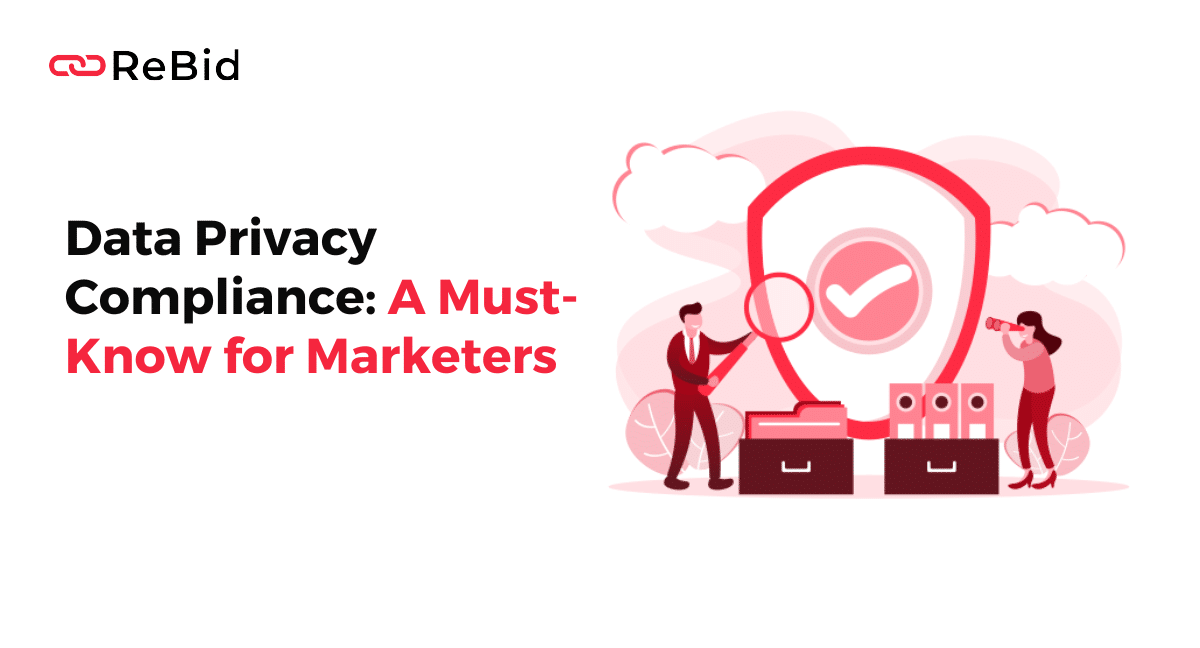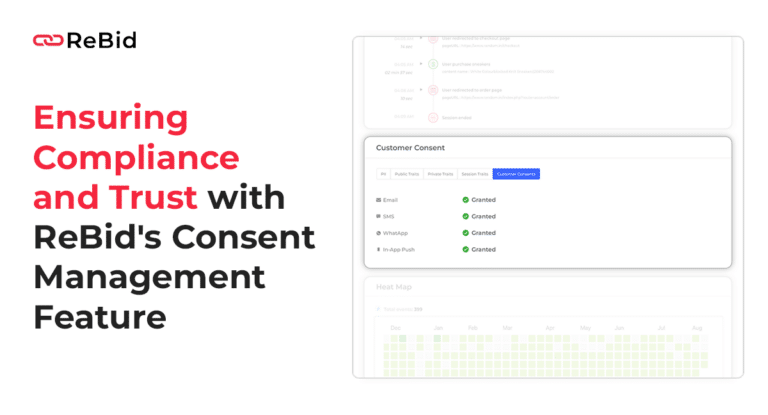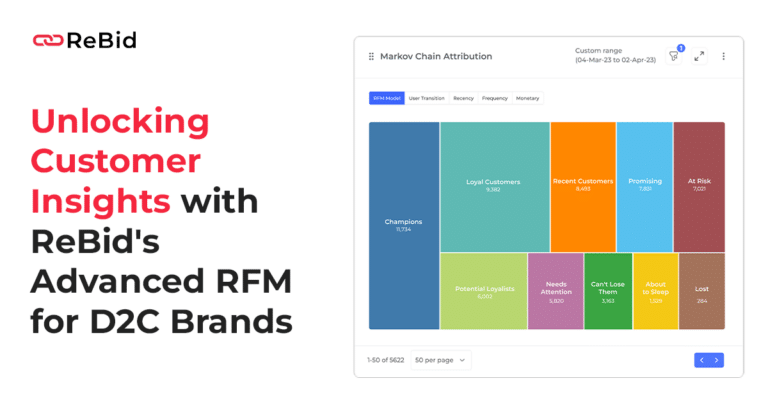Understanding Data Privacy Laws
In the ever-evolving digital realm, data privacy laws have assumed an increasingly paramount position. As marketers, it is imperative for us to fathom the intricacies of these laws in order to ensure adherence and safeguard our customers’ privacy. Amongst the pantheon of such regulations, one stands out with resounding prominence – the General Data Protection Regulation (GDPR), a directive introduced by the European Union in 2018.Under this hallowed GDPR umbrella, companies are mandated to secure explicit consent from individuals before embarking on any collection of personal data; furthermore, they must seamlessly elucidate upon how said information shall be employed. Ergo, as marketers we cannot fall prey to assumptions that individuals willingly partake in sharing their details with us. On the contrary, we must actively solicit their permission whilst being unequivocally transparent about our intentions regarding their cherished data. Any deviation from this path may result in exorbitant penalties and inflict irreparable harm upon our hard-earned reputation. To underscore this critical juncture further, let us delve into a hypothetical scenario involving a clothing retailer that proffers personalized marketing emails unto its esteemed clientele.
• The General Data Protection Regulation (GDPR) is a significant data privacy law introduced by the European Union in 2018.
• Companies must obtain explicit consent from individuals before collecting their personal data under GDPR.
• Marketers need to clearly explain how they will use the collected information to comply with GDPR regulations.
• Assumptions about individuals willingly sharing their details should be avoided, and marketers should actively seek permission from customers.
• Failure to adhere to GDPR guidelines can lead to hefty penalties and damage a company’s reputation.
• Let’s consider a hypothetical scenario involving a clothing retailer that sends personalized marketing emails to its customers.
Key Components of Data Privacy Compliance
In the realm of data privacy compliance, marketers must navigate a maze of perplexing components. The foremost concern is securing consent from individuals before embarking on the collection of their personal information. Transparency reigns supreme as marketers must openly communicate what data will be gathered and how it shall be utilized, while also granting individuals the freedom to opt out should they choose not to partake in this endeavor.An additional intricate facet revolves around ensuring that collected data is stored and safeguarded with utmost care. This entails implementing rigorous technical and organizational measures to shield against unauthorized access or disclosure. Furthermore, a constant evaluation and updating of security protocols are imperative to combat potential vulnerabilities that may suddenly rear their head. Moreover, establishing explicit policies and procedures for handling and retaining data becomes an essential cog in this complex machinery. A documented process for addressing data breaches must exist alongside a plan for securely discarding unnecessary information.By embracing these pivotal elements of data privacy compliance, marketers can go beyond mere adherence to legal obligations; they can foster trust among their valued clientele. When individuals witness responsible and secure management of their personal information, they find solace in sharing such details with companies’ marketing endeavors. Consequently, stronger customer relationships flourish alongside enhanced business outcomes. Henceforth, comprehending and effectively executing these vital components becomes paramount for marketers striving within the ever-changing landscape governed by stringent data privacy regulations
Implications of Non-compliance
The repercussions of failing to adhere to data privacy laws can be perplexing and unpredictable for marketers. Not only are there the looming threats of substantial fines and legal consequences, but also the potential erosion of trust among customers and damage to a company’s reputation. Consider, for example, the recent case involving a well-known retail brand that suffered a data breach due to non-compliance with privacy regulations. This incident exposed millions of customer records, resulting in a loss of confidence from customers and ultimately impacting sales negatively. The financial implications were significant, but equally damaging was the tarnishing of the brand’s image, creating an arduous uphill battle in their attempts to regain customer loyalty.Another instance involves a digital advertising agency that failed to obtain proper consent before utilizing individuals’ personal data for targeted marketing campaigns. When this violation came to light, it sparked severe public backlash against the agency. Credibility took a hit and clients were lost as trust dwindled away. It is crucial to recognize that non-compliance goes beyond facing legal penalties; it has far-reaching effects on business sustainability and long-term success.Therefore, it is imperative for marketers not only to comprehend but also strictly adhere to data privacy laws in order to avoid these bewilderingly detrimental outcomes
• Non-compliance with data privacy laws can result in substantial fines and legal consequences.
• Failure to adhere to privacy regulations can lead to a loss of trust among customers.
• Data breaches due to non-compliance can expose customer records, negatively impacting sales.
• Tarnishing a brand’s image through non-compliance makes it difficult to regain customer loyalty.
• Failing to obtain proper consent for targeted marketing campaigns can result in severe public backlash and the loss of clients.
• Non-compliance has far-reaching effects on business sustainability and long-term success.
The Role of Marketers in Data Privacy Compliance
As marketers, we find ourselves in the perplexing and bursty realm of data privacy compliance within our organizations. Once upon a time, we reveled in the freedom to collect and utilize customer data without any strings attached. However, those days are long gone. The emergence of privacy legislations like the General Data Protection Regulation (GDPR) and the California Consumer Privacy Act (CCPA) has thrust upon us the responsibility to navigate an intricate landscape and safeguard our customers’ privacy rights.To fulfill this weighty responsibility, one avenue available to us is acquiring knowledge and staying abreast of regulations that pertain to our industry. It is imperative for us to grasp the fundamental principles and requirements laid out by these laws as it enables us to establish practices for collecting and processing data that fall within legal bounds. For instance, we must have a firm understanding of lawful bases for processing personal data such as consent or legitimate interest. Armed with this knowledge, we can make informed decisions when crafting marketing campaigns, ensuring that we do not impinge upon the rights of individuals whose valuable information we handle.
• Acquiring knowledge and staying abreast of privacy regulations is crucial for marketers to fulfill their responsibility in data privacy compliance.
• Understanding the fundamental principles and requirements laid out by laws such as GDPR and CCPA enables marketers to establish practices that are within legal bounds.
• Marketers need to have a firm understanding of lawful bases for processing personal data, such as consent or legitimate interest.
• This knowledge allows marketers to make informed decisions when crafting marketing campaigns, ensuring they do not infringe upon individuals’ rights.
Educating Marketers on Data Privacy Regulations
When it comes to data privacy regulations, marketers find themselves in a perplexing maze. Their duty is not only to protect customers’ data privacy but also to establish trust and credibility. To accomplish this, marketers must possess a deep understanding of the intricate policies and guidelines that govern their actions.But how does one acquire such knowledge? By immersing marketers in the bewildering world of real-life examples and case studies. These tales depict the consequences that await those who dare defy compliance with these regulations. They serve as jarring wake-up calls, reminding marketers of the dire repercussions faced by companies that have fallen afoul of data privacy laws. Through these cautionary tales, an urgency emerges – adherence to regulation is paramount.Furthermore, practicality becomes key in equipping marketers with actionable insights on implementing data privacy policies and procedures. Offering them step-by-step guides empowers them to maneuver through this treacherous terrain effectively. Armed with education, they can confidently navigate the complex landscape of data privacy regulations without stumbling into legal trouble or tarnishing their reputation.In conclusion, education acts as a beacon illuminating the path for marketers amidst the enigmatic realm of data privacy regulations. It bestows upon them crucial knowledge and skills required for successful navigation through this turbulent domain
• Marketers must protect customers’ data privacy and establish trust
• Knowledge of policies and guidelines governing their actions is essential
• Real-life examples and case studies illustrate the consequences of non-compliance
• Adherence to regulations is crucial for avoiding legal trouble and reputation damage
• Practical step-by-step guides empower marketers to implement data privacy policies effectively
Implementing Data Privacy Policies and Procedures
The implementation of data privacy policies and procedures is not only crucial for compliance with regulations but also vital for establishing trust with customers. By creating a comprehensive set of policies and procedures, marketers can ensure that they handle their customers’ personal information in a secure and ethical manner.One approach to implementing data privacy policies and procedures is to thoroughly assess the organization’s current data management practices. This assessment helps identify any potential gaps or vulnerabilities in data privacy measures and provides a roadmap for improvement. For example, an e-commerce company might discover the need to encrypt customer payment information or tighten access controls for employee data.Education plays another critical role in implementing these policies and procedures. Employees should be educated about their responsibilities when handling customer data through training sessions, workshops, or easy-to-understand guidelines and checklists. A marketing team regularly collecting customer data should understand the importance of obtaining explicit consent and providing clear information on how the data will be used.Overall, implementing robust data privacy policies and procedures is a fundamental step towards regulatory compliance while fostering a culture of privacy within an organization. By taking proactive measures to address any deficiencies in their practices, marketers can safeguard sensitive customer information while enhancing their brand reputation in an increasingly privacy-conscious world.
• Creating a comprehensive set of policies and procedures is crucial for handling customer data securely and ethically.
• Thoroughly assessing current data management practices helps identify gaps or vulnerabilities in data privacy measures.
• Education plays a critical role in implementing these policies, with employees needing to be educated about their responsibilities when handling customer data.
• Training sessions, workshops, guidelines, and checklists can be used to educate employees on the importance of obtaining consent and providing clear information on how data will be used.
• Implementing robust data privacy policies fosters a culture of privacy within an organization while ensuring regulatory compliance.
• Proactive measures should be taken to address any deficiencies in current practices to safeguard sensitive customer information.
Best Practices for Collecting and Storing Customer Data
The perplexing and bursty world of modern marketing necessitates the astute collection and preservation of customer data. To engender adherence to data privacy legislation and cultivate trust amongst customers, marketers are compelled to embrace exemplary practices in this realm. One paramount practice entails exclusively gathering pertinent and indispensable data that aligns with your marketing objectives. Instead of soliciting an excess of personal information, concentrate on amassing data that tangibly influences your campaigns.Consider a clothing retailer who seeks customer preferences such as size and style to tailor product recommendations. This method not only respects privacy but also enriches the customer experience. Simultaneously acquiring solely necessary information, marketers should contemplate implementing stringent measures for safeguarding data. This encompasses adopting secure methods for storing information, including encrypted databases and fortified servers. Furthermore, it is crucial to routinely scrutinize and update security protocols to proactively combat potential breaches in data integrity. By zealously adhering to these measures, marketers can shield customer data while fostering a sentiment of confidence and dependability within their target audience.
• Gather pertinent and indispensable data that aligns with marketing objectives
• Concentrate on amassing data that tangibly influences campaigns
• Respect privacy by only collecting necessary information
• Tailor product recommendations based on customer preferences such as size and style
• Implement stringent measures for safeguarding data
• Adopt secure methods for storing information, including encrypted databases and fortified servers
• Routinely scrutinize and update security protocols to proactively combat potential breaches in data integrity
Transparency and Consent: Building Trust with Customers
Transparency and consent hold profound significance in cultivating trust among customers and upholding data privacy compliance. When marketers adopt an open and sincere approach towards the collection, utilization, and safeguarding of customer data, it generates a sense of clarity that customers deeply appreciate. Let us consider the instance of a clothing brand that seeks customer consent prior to employing their personal information for targeted advertising. By articulating the purpose and advantages of personalized advertisements in a lucid manner while offering customers the freedom to opt out, this brand effectively conveys its regard for privacy preservation and respects individual choices.An equally pivotal facet in fostering trust lies in endowing customers with dominion over their own data. An online retailer that facilitates effortless management of privacy settings, enables modification of personal details, and grants account deletion exemplifies unwavering dedication to customer empowerment. By granting individuals control over their data, they are empowered to determine which information is shared with whom. This instills faith in the brand’s commitment to data privacy while fortifying the bond between brand and customer.
• Transparency and consent are crucial for building trust with customers
• Marketers should be open and sincere about collecting and using customer data
• Providing clear information about personalized advertisements and allowing customers to opt out shows respect for privacy preservation
• Giving customers control over their own data strengthens the bond between brand and customer
• Online retailers should make it easy for customers to manage privacy settings, modify personal details, and delete their accounts
What are data privacy laws and why are they important?
Data privacy laws, a perplexing labyrinth of regulations, act as guardians that shield the personal information of individuals. Their importance rests in their ability to ensure businesses navigate the treacherous waters of customer data with caution and responsibility, honoring their sacred right to privacy.
What are the key components of data privacy compliance?
The enigmatic essence of data privacy compliance lies within its key components – consent acquisition from customers before daring to collect their valuable information, implementation of formidable security measures guarding against malevolent forces seeking unauthorized access, illumination on how this coveted trove shall be exploited while adhering faithfully to relevant legal frameworks.
What happens if a business doesn’t comply with data privacy laws?
Disastrous consequences await those who dare defy the tenets ensconced within data privacy laws. Monetary afflictions in the formidably hefty fines will assail them mercilessly; legal penalties loom ominously on the horizon; trust so painstakingly cultivated by customers begins crumbling like an ancient ruin; and untold damage wreaks havoc upon even the most illustrious reputation.
What role do marketers play in data privacy compliance?
Marketers assume an indispensable role in navigating through the bewildering maze known as data privacy compliance. They shoulder immense responsibility for gathering and harnessing customer insights. It is incumbent upon these marketing mavens to acquaint themselves intimately with regulatory landscapes, ensuring that delicate threads connecting customer information remain unbroken.
How can marketers be educated on data privacy regulations?
Enlightenment awaits marketers yearning for knowledge regarding arcane intricacies nestled within ever-evolving realms of data privacy regulations. Training programs beckon earnest learners seeking guidance; workshops offer solace amidst this sea of uncertainty; webinars present golden opportunities for enlightenment; vigilantly tracking updates ensures perpetual awareness – all essential endeavors safeguarding against potential pitfalls born from non-compliance.
How can businesses implement data privacy policies and procedures?
Unveiling an impenetrable fortress guarding customer information necessitates meticulous implementation of data privacy policies and procedures. Scrutinizing their current practices with an unwavering gaze, enterprises must fortify themselves by revising privacy policies, imbuing employees with the weighty significance of data privacy, ceaselessly evaluating and enhancing the very fabric that weaves together their data handling processes.
What are some best practices for collecting and storing customer data?
In this fickle realm of collecting and storing customer data, a tapestry woven with the threads of uncertainty, certain principles emerge as guiding lights. Seek explicit consent – forego ambiguity; employ secure methods to transport and safeguard this treasure trove; perpetually update security measures in lockstep with ever-advancing threats; restrict access to these hallowed halls; illuminate customers on how their most intimate details shall be employed.
How does transparency and consent help build trust with customers?
A bewitching dance between transparency and consent unfolds upon a stage where trust is begotten. The radiant light emanating from transparent intentions assures customers that their sacred right to privacy is cherished steadfastly. Obtaining heartfelt consent acts as a binding force between business entities and individuals seeking solace in knowing that their personal sphere remains inviolate. When these ethereal elements coalesce harmoniously, trust blossoms like a rare flower amidst an arid desert landscape – forging bonds unbreakable between businesses and those they serve.





